[History Through The Korea Herald] How tragedy of Kim Duk-goo changed boxing forever
South Korean boxer's ill-fated match in 1982 left world in shock, paved way for more safety measures
Published : 2023-04-19 16:07:22
"Boxer Kim clinging to life in coma," reads the top story of the sports page in the Nov. 16, 1982 edition of The Korea Herald.
The article recounts how South Korean boxer Kim Duk-goo was barely kept alive on life support after suffering a cerebral hemorrhage during a World Boxing Association lightweight championship fight in Las Vegas. The neurosurgeon who operated on Kim was quoted as saying that his chances of survival were very slim.
Three days prior, the 27-year-old faced defending champion Ray "Boom Boom" Mancini at a ring inside Caesar's Palace. Kim was an obscure underdog who had only fought outside his home country once before this match.
However, his fall came as abruptly as his rise to contending for the boxing crown.
Having come to America as an unknown challenger, Kim’s name was about to be etched across boxing history in the most tragic way, a devastating conclusion to a journey that had kicked off several decades earlier.
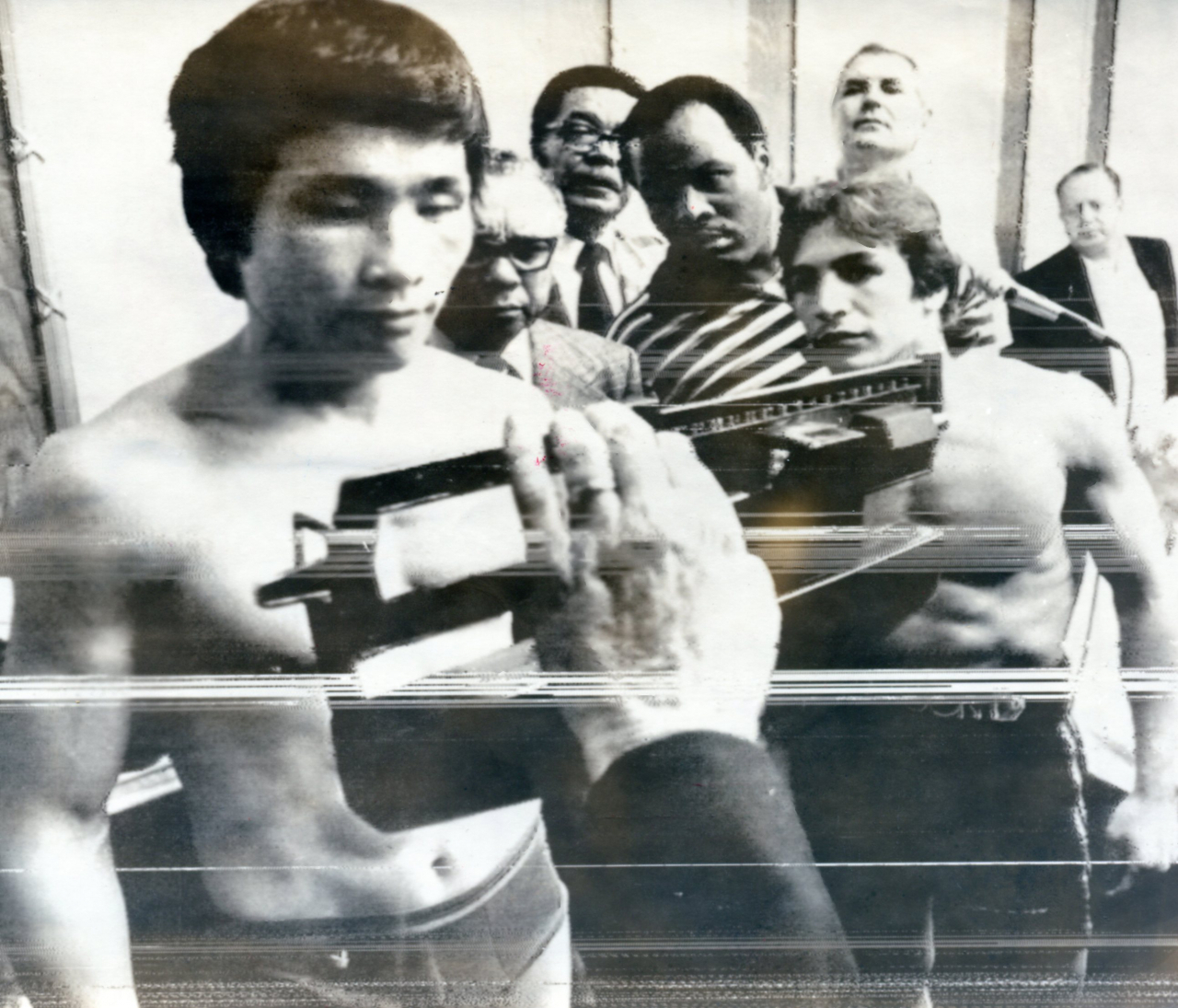
Poor, determined country boy
Growing up in a nation still recovering from the aftermath of the war, the Kim family were very poor. Kim's school tuition would usually be in arrears and his short temper often landed him in a fights as a child.
Struggling to hold regular jobs, Kim eventually found his calling inside a boxing ring of a gym in Seoul.
Boxing at the time was a source of national pride for South Koreans. Ever since Hong Soo-hwan became the country's first world champion in 1974, the country churned out a number of world-class boxers who were armed with a "hungry spirit” -- an unwavering determination to fight and willingness to risk it all.
Kim's friend and former WBA super-middleweight champion Park Chong-pal said in a 2018 interview with local media that the two would sleep on the gym floor, which was swarming with bed bugs.
"Poverty is my teacher" are the words inscribed on Kim’s tomb. Determined and strong-willed, he turned pro in 1978 and became the national champion two years later.
His victory over Kim Kwang-min on Feb. 28, 1982 won him the Oriental and Pacific Boxing Federation lightweight championship title, making him the No. 1 contender for taking part in the World Boxing Association championship. So it was set: Kim headed to the US to challenge Mancini for the world champion title.
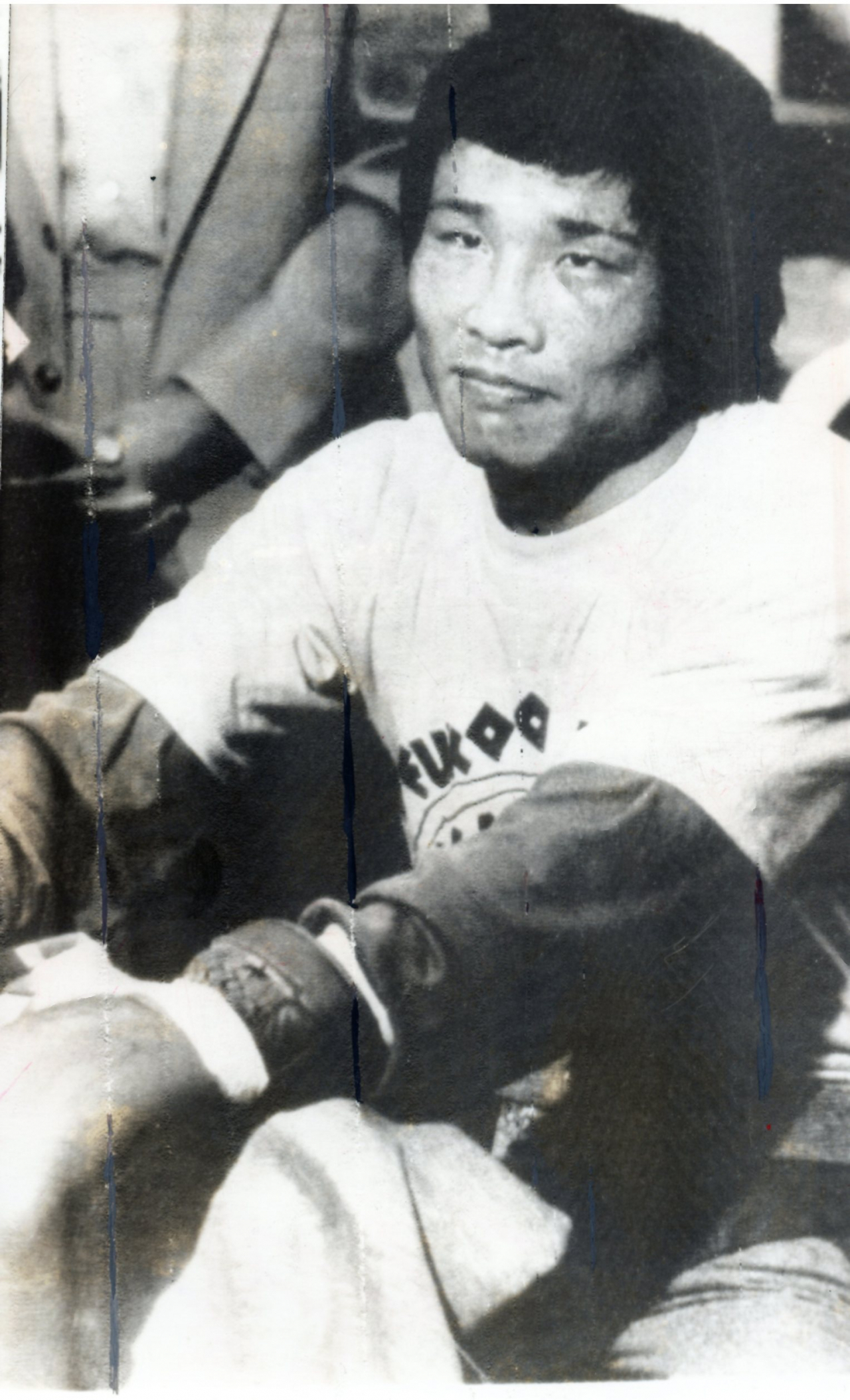
Kim was famously quoted for saying, "Either he (Mancini) dies, or I die." According to Park, Kim made a small coffin made out of matchboxes that he took with him to the US.
The coffin was a symbol that there was no force in this world that would make him back down.
Kim goes down in the 14th
The country boy from Gangwon Province was in awe of Las Vegas, saying that it was "like heaven" when he arrived at Sin City a week before the match.
On Nov. 13, the two fighters stood in front of some 10,000 spectators at Caesar's Palace. Similarly built, Kim and Mancini exchanged blows as the underdog survived round after round despite the odds being stacked against him.
However, by the 10th round Kim started looking fatigued. By the 12th, commentators were pointing out how visibly tired Kim looked. He stumbled across the ring and struggled to regain his footing.
Round 13 started with Mancini landing punch after punch, with Kim unable to land a single one throughout the onslaught. But Kim rallied, coming back strong with a pummeling of equal intensity.
"This is the challenger, Duk-goo Kim. You may not have heard of him before, you WILL remember him today," CBS commentator Tim Ryan said before the 14th round. The praise for Kim's performance, however, would turn out to be an ominous foreshadowing of the young boxer's fate.
The two fighters shot forward at the sound of the gong for the 14th round, and there it was for Mancini: a clear shot to Kim's face. It was the one that finally knocked Kim out, flat on his back.
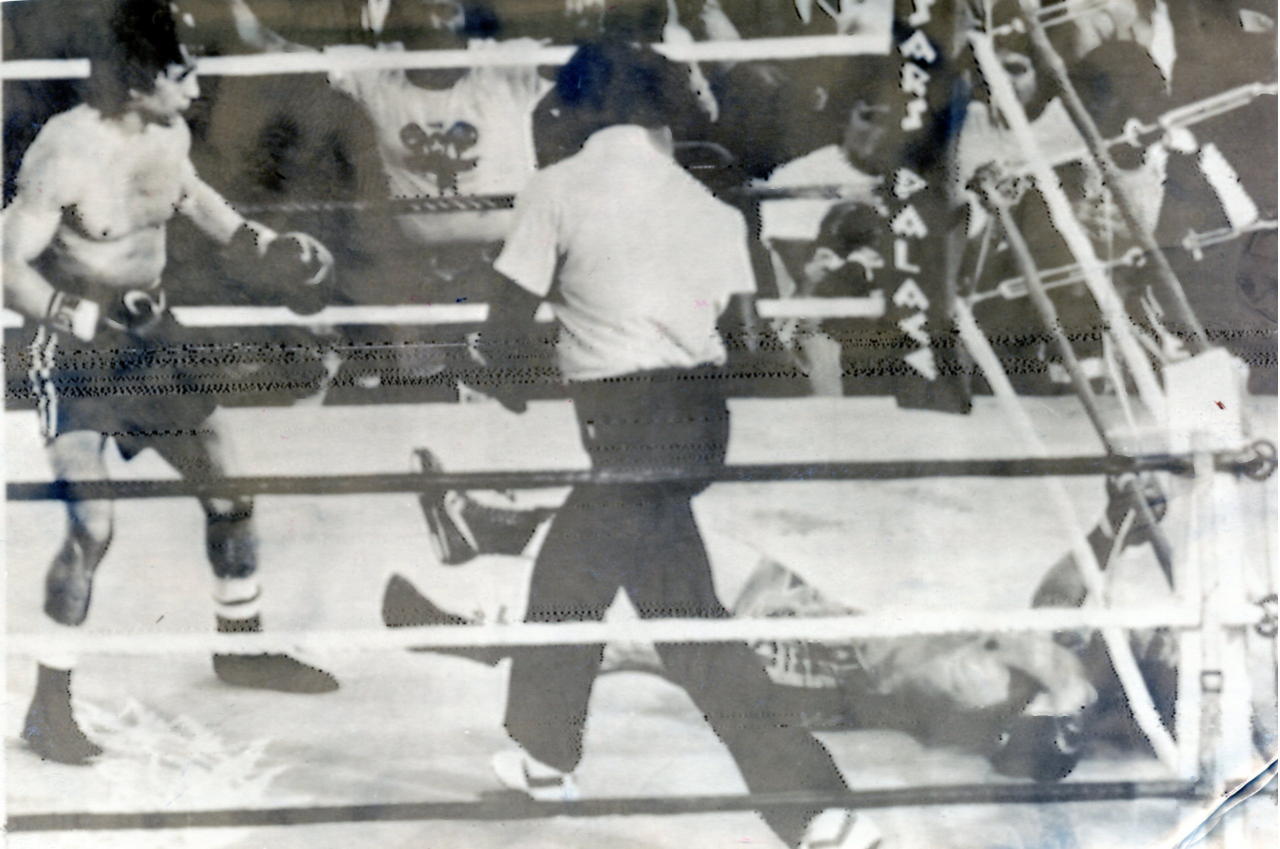
Despite the critical blow, Kim hobbled back onto his feet with herculean effort. But the referee Richard Green would not take any more chances, as he announced the fight over: Ray "Boom Boom" Mancini had defended his title.
As the celebration went on, Koreans were seen rushing toward Kim’s corner where the boxer was barely able to remain seated. He was eventually carried off on a stretcher, an ominous sight that would affect the lives of many in the years to come.
Legacy on boxing safety
A CT scan revealed a blood clot on the right side of Kim’s brain in the parietal lobe. It was soon made clear that he would not escape death, and the question was when to pull the plug.
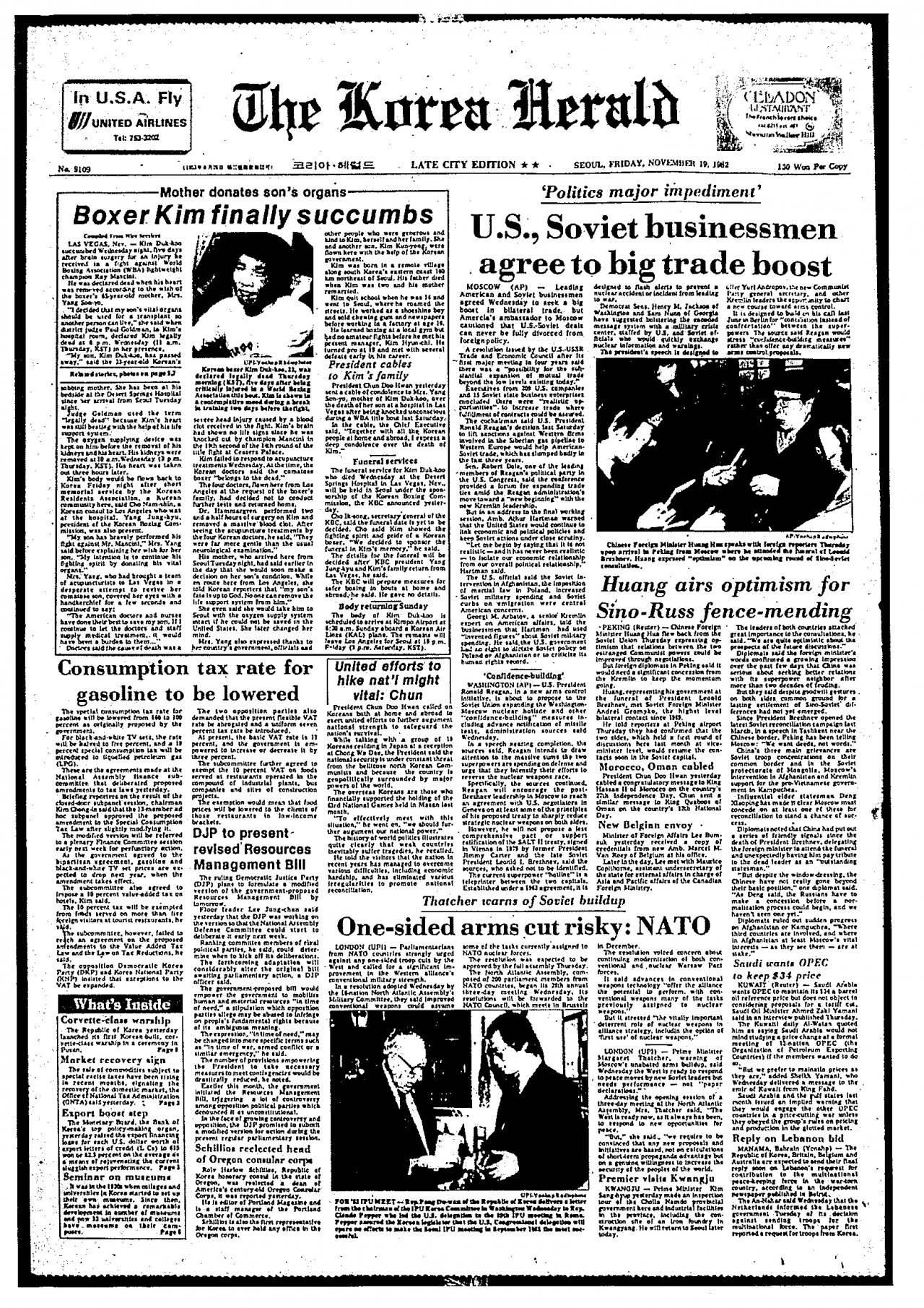
The decision was difficult, as Kim had not appointed an emergency medical guardian, and neither his mother or wife had accompanied him on the trip. According to the story in The Korea Herald, Kim's mother Yang Sun-yo said she could not afford it.
Eventually Yang was able to come to Las Vegas on a trip sponsored by the South Korean government, and the doctors took him off life support with her consent.
Kim's death sent shockwaves across the boxing world and raised concerns about the sport's safety. A Korea Herald column in the Nov. 17, 1982 edition titled "Boxing and Safety" addresses this issue by calling for stronger safeguards and precautionary steps to reduce the risk of fatal injuries.
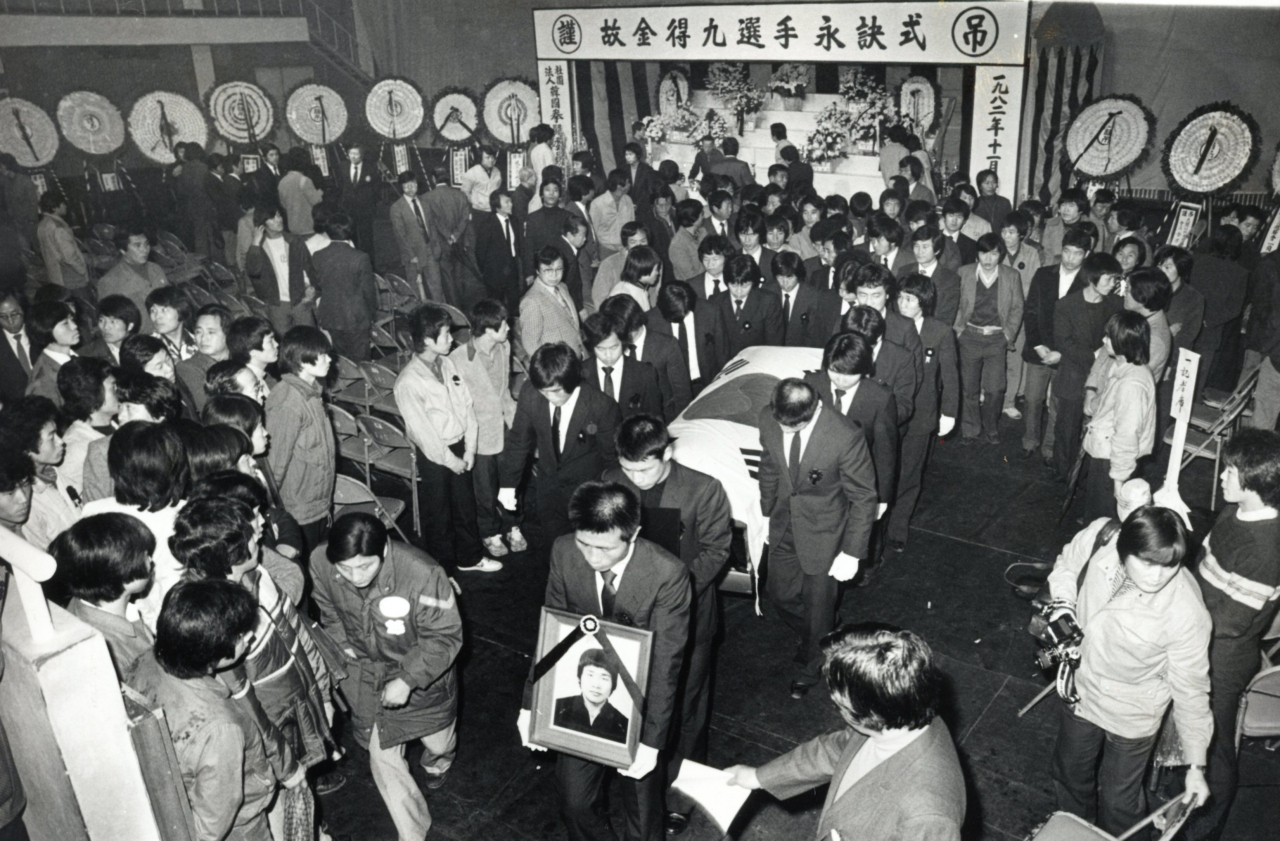
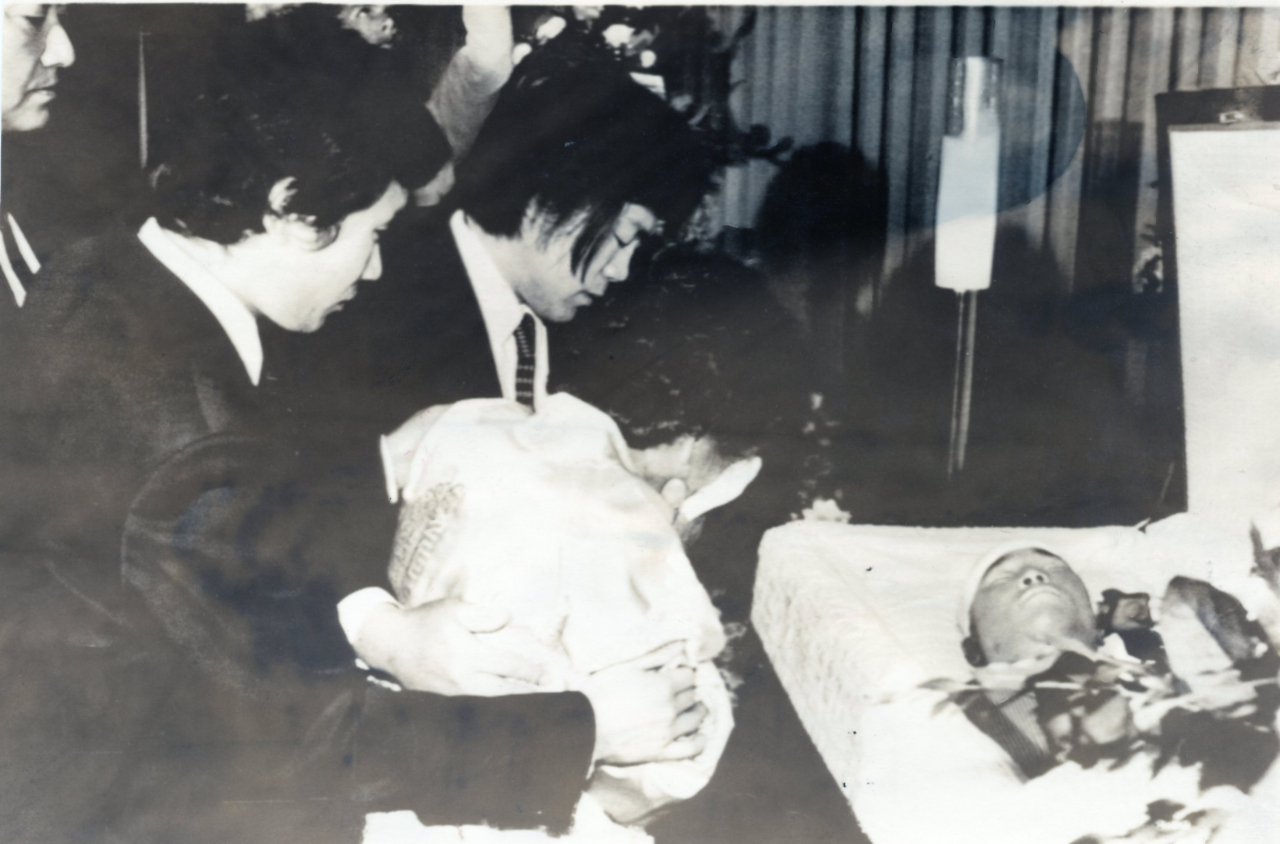
The most significant change that took place after Kim's death was the reduction of championship rounds from 15 to 12. The World Boxing Council was the first to implement such a change in 1982. The World Boxing Association and International Boxing Federation followed suit in 1987.
The World Boxing Organization, which was founded in 1988, also implemented the 12-round rule.
Other changes included more thorough pre-fight checkups on crucial organs including electrocardiograms and brain tests.
Kim’s legacy is greater concern about the safety of fighters among boxing governing bodies, along with increased awareness about the sport’s fatal dangers. However, these measures cannot undo the damage to those who were affected by that fateful night.
Three months after Kim’s death, his mother died by drinking pesticide. "My son started boxing because I was poor. It was me who killed him," she wrote in her will.
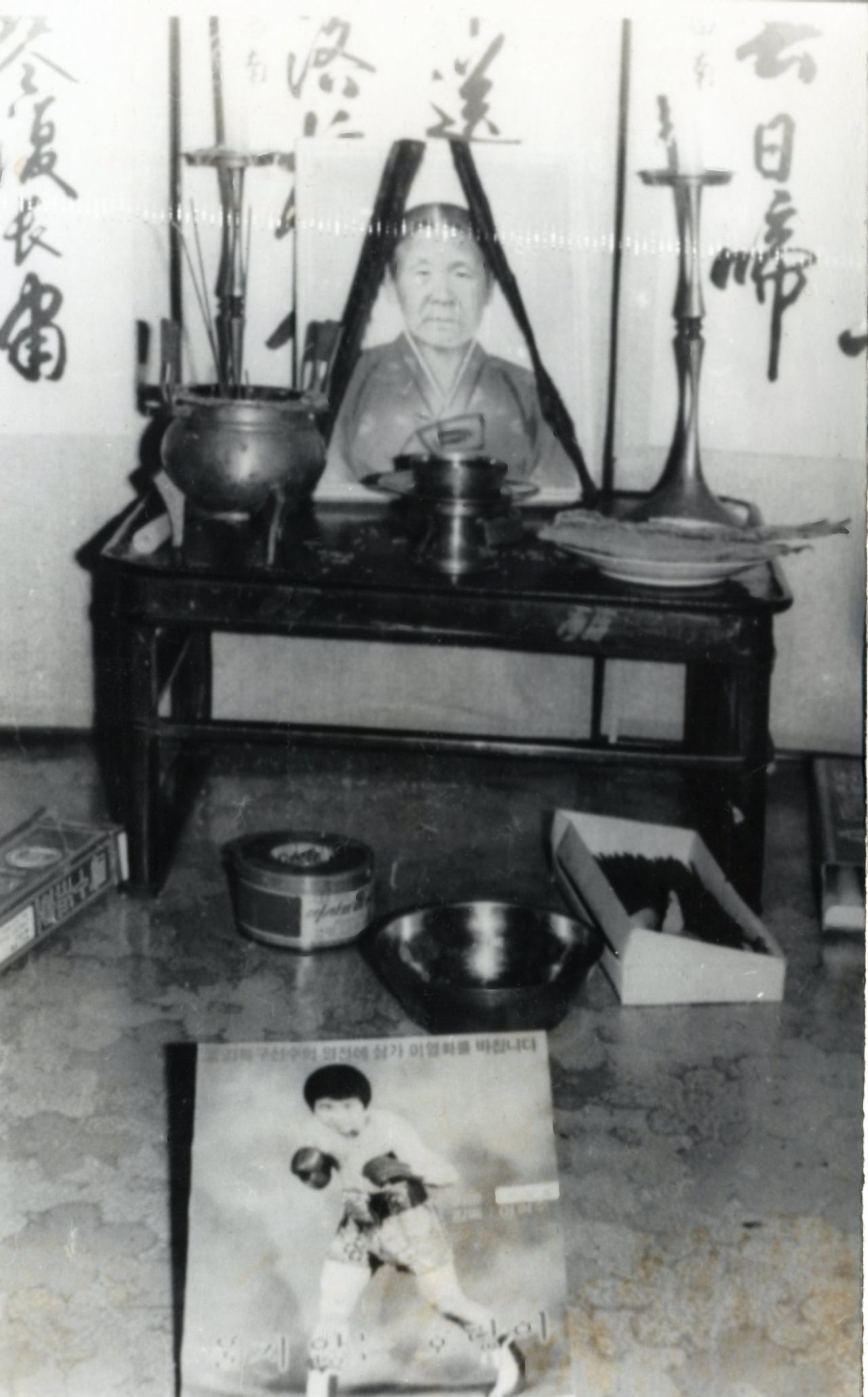
The referee was also found dead about seven months after the match at his home, which was ruled suicide via self-inflicted gunshot by the coroner.
Mancini himself was also forced to endure the psychological burden that lingered for decades. There were also false reports from the press, such as how he had cloistered himself in his hotel room over grief.
In 2012 Mancini met Kim's son, who told Mancini that he was not responsible for Kim’s death. “You deserve. Maybe now your family will be more happy,” Kim’s son was quoted as saying in a New York Times article.
http://www.koreaherald.com/common/newsprint.php?ud=20230419000666